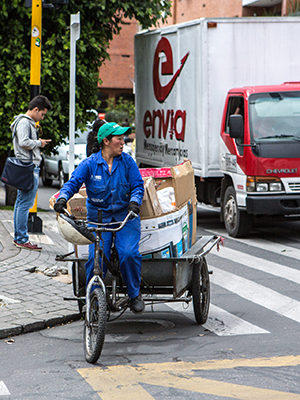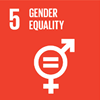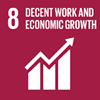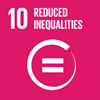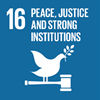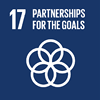Transforming economies, states, and societies
At its core, development is about the well-being of people. But it is also about creating societies which provide fundamental rights and just social political outcomes. Sustainable and inclusive development requires transformative changes across three fundamental areas: in the structures of economies, in the state, and institutions that govern social and market interactions and broader developmental processes, and in society itself. These transformations are central to the achievement of the United Nations’ 2030 Agenda for Sustainable Development and the Sustainable Development Goals (SDGs).
The 2019–23 UNU-WIDER work programme focuses on the interlinked development challenges of transforming economies, states, and societies and maps them against SDGs 5, 8, 10, 16, 17. By mobilizing research evidence for action through the ongoing processes in the UN and its member states, the institute continues to work with stakeholders to strengthen capacities for research, technical, and policy analysis, and facilitate exchange of experiences and knowledge towards bold and collaborative development solutions for countries and regions around the world.
Click on the table below to explore our current work or scroll down to search past projects.
19 active and previous projects
Filter by...
2008-09
African development - myths and realitiesExisting research on Africa has produced a seemingly endless list of reasons why African growth and poverty reduction record has lagged behind that of other regions of the developing world. This project looks at the reasons put forward for Africa’s...
2008-09
Frontiers of poverty analysisThe aim of this project is to take stock of the often overlooked options now available to researchers at the frontiers of poverty analysis and to illustrate their use in developing country contexts. The main project activity will be an international...
2008-09
Development in an urban worldIn 2007 the number of urban inhabitants will surpass rural dwellers as a percentage of the total world population. By 2030 the proportion of people living in cities globally is expected to reach 61%, with almost 80% of urban dwellers living in less...
2008-09
Promoting entrepreneurial capacityEntrepreneurship can play an important role in structural economic change and in improving wellbeing. Governments and international institutions are investing increasing resources to promote entrepreneurship. This project aims at a greater...
2008-09
Role of elites in economic developmentTheir influence of elites in politics, government, business, and the media profoundly influences the direction of economic and social activities. In some countries, the preferences of elites are closely aligned with the national interest. Elsewhere...
2008-09
Reflections on transition - twenty years after the fall of the Berlin wallThe fall of the Berlin Wall in November 1989 was a defining moment in the transition of former socialist countries into market economies. To mark the twentieth anniversary of this historic event, UNU-WIDER is organising a two-day conference to review...
2004-05
Jubilee conference - WIDER thinking aheadAbout 200 participants attended the conference, more than 150 of them coming from outside Finland. The conference was open to younger researchers as well as established scholars. A list of participants is available on WIDER’s website. Conferences...
2004-05
Personal assets from a global perspectiveThe project aims to assemble data about the distribution and composition of personal assets in developing, transition, and developed countries and to study the implications of personal asset-holding for economic development. The most important asset...
2004-05
Unlocking human potential conferenceConferences: 17 September 2004 EGDI-WIDER Conference on Unlocking Human Potential: Linking the Informal and Formal Sectors
2004-05
Inequality and poverty in ChinaGetting an accurate picture of poverty and inequality trends and patterns in the world’s most populous country is central to understanding changes in global inequality and poverty – these alter significantly when China is included or excluded. China...
2004-05
International mobility of talentInternational development in the era of globalization needs an effective transfer of knowledge and human capital from the main centres of knowledge creation to developing countries for supporting their growth and development process. Most of the new...
2004-05
Millennium development goals - assessing and forecasting progressAchievement of the MDG goals by 2015 is an ambitious undertaking. The donor community is now mobilizing resources behind the goals, and efforts to implement the goals are now underway at national and international levels. It is inevitable that...
2004-05
Development aid - a fresh lookDevelopment aid has become an increasingly hot topic in international research and policy circles, especially following the adoption of the Millennium Development Goals. Donors are paying increased attention to how they allocate aid across countries...
2004-05
Financial sector development for growth and poverty reductionThe mobilization of domestic savings for private investment plays a crucial role in achieving growth and poverty reduction; this is demonstrated by the historical experience of the now developed countries as well as East Asia. However two problems...
2004-05
Hunger and food security - new challenges and new opportunitiesMillions of people remain desperately food insecure, and over a decade of agricultural-sector reform appears to have achieved little in the way of improving entitlement to food in many countries. This project will investigate why progress in...
 Join the network
Join the network